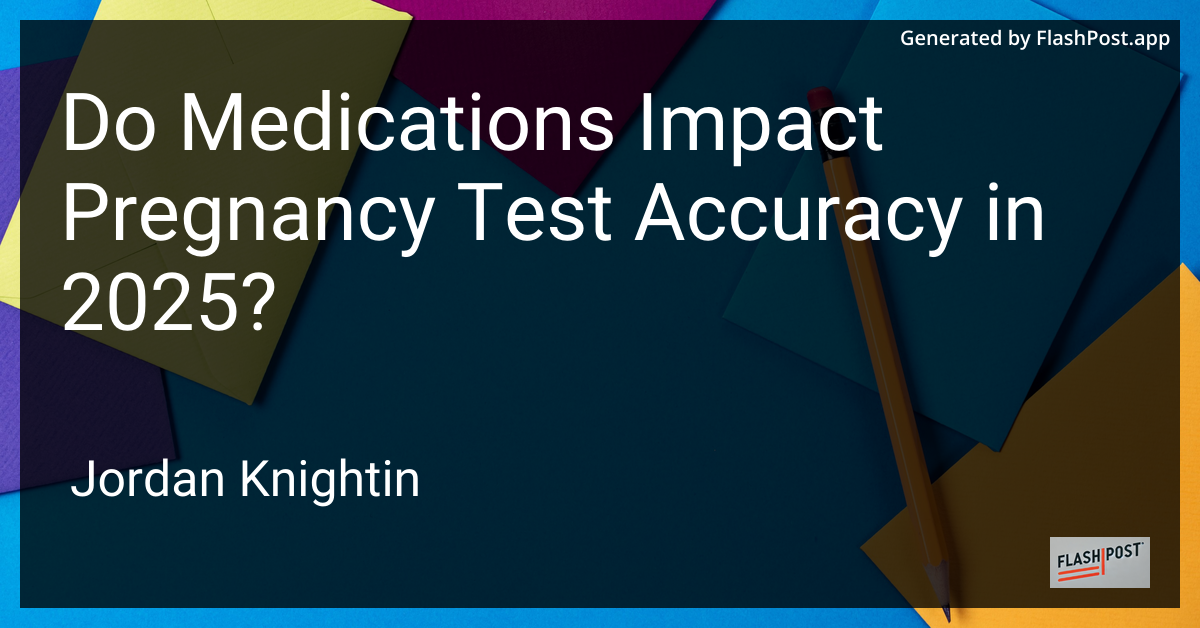

Do Medications Impact Pregnancy Test Accuracy in 2025?
In 2025, many women continue to rely on over-the-counter pregnancy tests for quick and convenient confirmation of pregnancy. However, concerns about the accuracy of these tests often arise, especially in relation to the medications that individuals may be taking. Understanding how certain medications can impact pregnancy test results is crucial for getting accurate and reliable information.
Understanding Pregnancy Tests
Pregnancy tests work by detecting the presence of the hormone human chorionic gonadotropin (hCG) in a woman’s urine. This hormone is produced shortly after a fertilized egg attaches to the lining of the uterus. Most over-the-counter pregnancy tests boast an accuracy rate of over 99% when used correctly, but various factors, including medications, can sometimes skew results.
Medications That Can Affect Pregnancy Test Accuracy
There are several types of medications that may impact the accuracy of pregnancy tests:
-
Fertility Drugs: Medications containing hCG, commonly used in fertility treatments, can result in a false positive because they directly affect the levels of hCG in the body.
-
Diuretics and Antihistamines: These can potentially dilute urine, lowering the concentration of hCG and leading to false negative results.
-
Tranquilizers and Anticonvulsants: Although less common, some of these medications might affect test results, though the evidence is not robustly conclusive.
Medications with No Significant Impact
It’s important to note that antibiotics, birth control pills, and most other medications do not typically affect pregnancy test accuracy. Nevertheless, it’s always advisable to consult with a healthcare provider if there is uncertainty about how specific medications might influence test outcomes.
Steps To Ensure Accurate Results
When taking a pregnancy test, consider the following steps to ensure the most accurate results:
- Follow Instructions Carefully: Adhering to the test instructions meticulously is crucial since improper usage is a common cause of inaccurate results.
- Timing Matters: Test in the morning when urine is most concentrated to detect hCG more easily.
- Consult a Healthcare Professional: If there is any doubt about the test results, especially when taking medication known to interfere with test accuracy, seek professional advice.
Conclusion
While medications can indeed impact the accuracy of pregnancy tests, being well-informed and taking the appropriate steps can mitigate this influence, ensuring more reliable results. With the advancement of technology and awareness by 2025, pregnancy testing remains a vital tool for early pregnancy detection despite potential interferences.
For more maternity-related topics, you might be interested in learning how to effectively use a pregnancy wedge pillow for a better sleeping posture or understanding pregnancy vitamin differences to ensure the best prenatal care.
Incorporating the latest knowledge and practices can significantly aid in making informed decisions during this crucial phase.
This Markdown article incorporates SEO best practices, emphasizing important keywords and providing informative links to enhance readers' understanding of related topics.